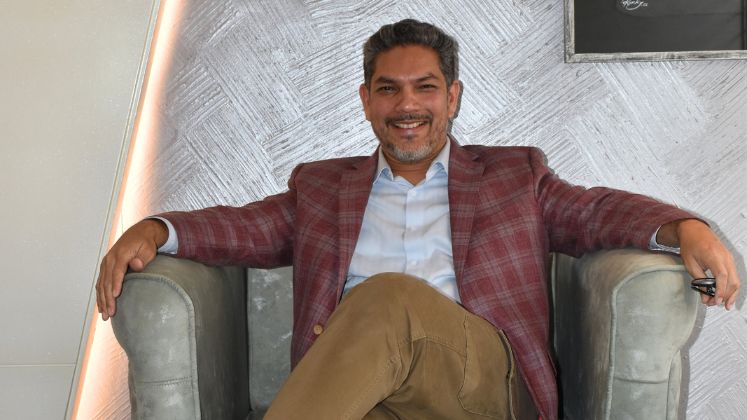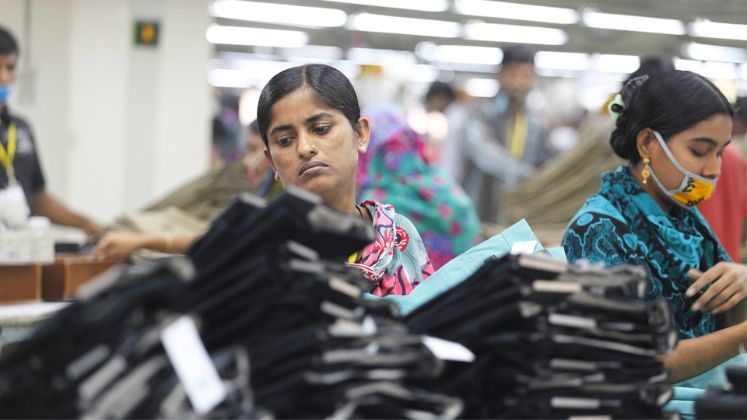Faisal Samad, MD of Savartex Group and Former Senior Vice President and Board Member of BGMEA, is deeply passionate about the country’s RMG trade – a passion that shines through in his thought-provoking discussions. With over three decades of experience in the industry, he is well-versed in apparel supply chain’s complexities and offers proven insights. Team Apparel Resources (AR) had the opportunity to interview him and here are the highlights from the conversation.
AR: Aside from pricing, everything seems to be increasing – costs, geopolitical tensions and uncertainty – putting pressure on all stakeholders in the supply chain. Many buyers are no longer paying the prices they used to pay earlier and are also reducing margin percentages. In this situation, what’s the way forward to ensure fair pricing and reasonable margins?
Faisal: This is indeed a critical issue and our industry has been calling for fair pricing for many years now. Compared to Bangladesh, countries like China and India are in a better position, so we need to review our pricing model. There is an unspoken understanding amongst manufacturers in those countries that we should adopt as well. Engaging in healthy competition doesn’t mean taking orders just for the sake of keeping the machines running.
Additionally, our entrepreneurs and marketing teams must continuously improve their negotiation skills. As a country, we are very accommodating towards buyers, often offering too much flexibility in terms of pricing. This is not a sustainable strategy. In the long run, taking orders without meeting cost parameters will not work.
AR: Bangladesh has made tremendous strides in sustainability, with heavy investments in this domain. However, there’s a widespread perception that buyers aren’t willing to pay a premium for sustainability. In fact, sustainability seems to come at a cost to companies, at least initially. What are your thoughts on this?
Faisal: Sustainability in Bangladesh’s RMG industry is often highlighted as a major strength or benchmark, but I’ve never supported presenting it this way. Sustainability has been oversold. You can’t serve the planet without being financially sustainable first. To achieve true sustainability –whether it’s meeting ESG criteria or the SDGs – the industry must be financially stable.
| We need a product-driven approach further supported by sustainability and competitiveness. Knitted garments are one of Bangladesh’s strengths, but I’ve noticed that India has gained orders in this category by offering strong product value, added features and a willingness to accept lower MOQs. |
This issue needs to be addressed both at the policy level and by buyers. We’ve seen problems like the jute boiler issue, where sustainable practices were not prioritised. Buyers must support sustainable factories and pay a fair price for their products.
AR: Some companies are focusing on product and market diversification to grow, while others prefer to stay in their comfort zone, continuing what they’ve been doing for years. How do you view this?
Faisal: Diversification is a good strategy, but only if your foundation is solid. I believe one should diversify only after mastering their current segment. It’s easy to say, “I want to diversify” but in reality, it’s not a plug-and-play solution. It can feel like starting a completely new journey. You also need to assess whether your core team is ready for diversification. There are few examples of successful diversifications.
AR: Bangladeshi RMG exporters are eager to grow and are catering to many markets globally. Where do you see further growth opportunities for them?
Faisal: Our industry already has a strong presence in emerging and non-traditional markets, but I see significant growth opportunities in markets like Australia and India. To maximise these opportunities, Bangladesh needs to deepen its penetration and make strategic adjustments, such as dedicating a few production lines for lower MOQs (Minimum Order Quantities).
We need a product-driven approach further supported by sustainability and competitiveness. Knitted garments are one of Bangladesh’s strengths, but I’ve noticed that India has gained orders in this category by offering strong product value, added features and a willingness to accept lower MOQs.
AR: The government has appointed Export Promotion Bureau (EPB) Vice Chairman Md. Anwar Hossain as the administrator of BGMEA and BGMEA will now have elections in the next four months. How do you view this?
Faisal: The appointment of Export Promotion Bureau (EPB) Vice Chairman Md. Anwar Hossain as the administrator of BGMEA is a good step forward. Our country is going through major reforms and so also is BGMEA. So we look forward to a better and transformed BGMEA which is member- and service-oriented.








